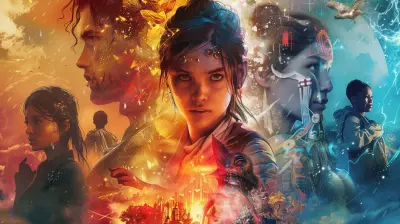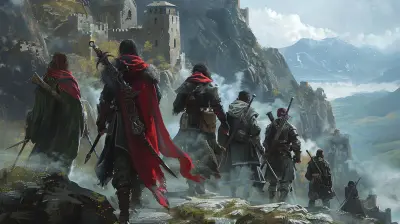How Multiplayer Fantasy Games Foster Real-World Friendships
20 October 2025
Let’s be honest—many of us grew up hearing that video games were a waste of time. Parents labeled it as anti-social, teachers claimed it rotted our brains, and society often blamed gaming for isolation. But here’s the kicker: multiplayer fantasy games are doing the opposite of what the skeptics thought. Believe it or not, these games are out here fostering real-world friendships. Yes, friendships that go beyond the screen.
If you’ve ever raided a dungeon with a team of strangers, strategized in a guild chat at 2 AM, or built entire kingdoms alongside your online buddies, you’ve already experienced the magic. Multiplayer fantasy games are more than just quests and dragons—they’re social hubs for connection. Let’s dive into the hows and whys because, frankly, it’s fascinating.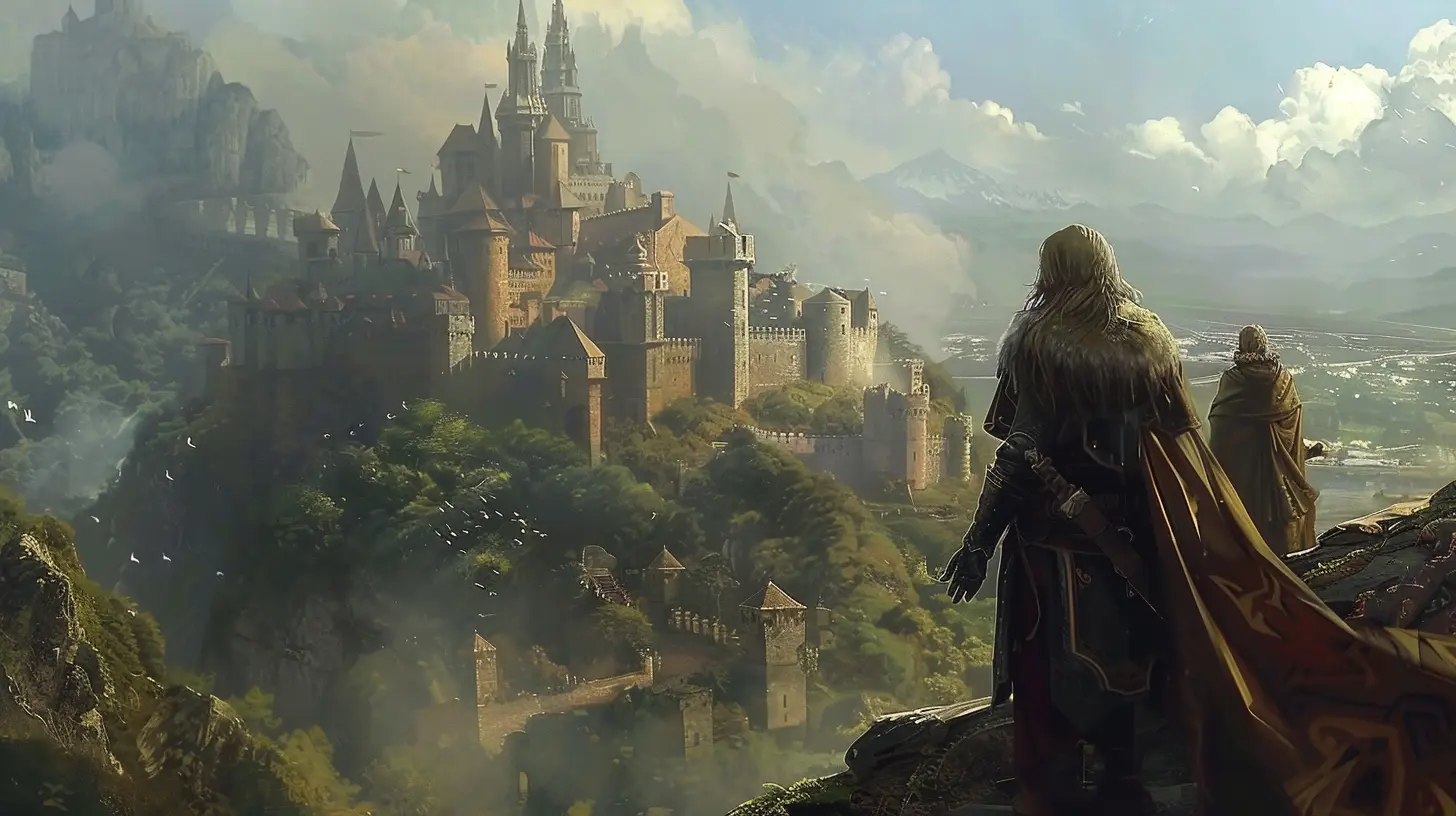
The Power of Shared Goals
You know how they say, "Nothing brings people together like a common goal"? That’s pretty much the foundation of multiplayer fantasy games. Whether it's surviving a boss fight, defending a castle, or solving intricate puzzles, these games require teamwork.Think about it. When you’re battling a fire-spewing dragon with your team, every single player matters. If the healer doesn’t heal in time, the tank absorbs too much damage, or the DPS players aren’t quick enough, it’s game over. In this high-stakes environment, you’re forced to communicate, strategize, and trust each other.
These shared experiences can create bonds faster than idle small talk in the office break room. You might start off as strangers typing “hi” in the team chat, but by the end of the raid, you’re hyping each other up like lifelong friends. Why? Because adversity builds camaraderie, even when it’s virtual. 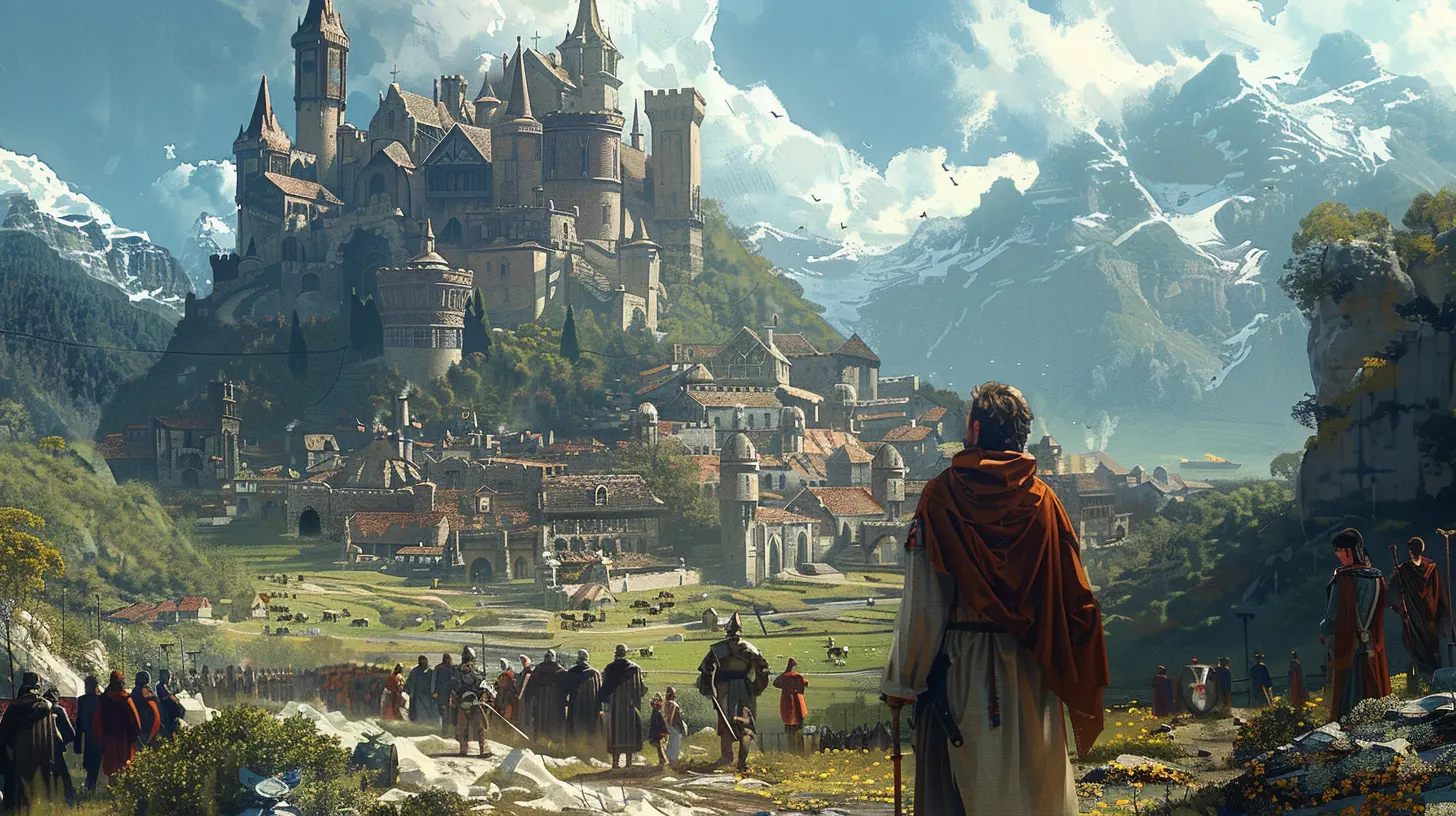
Communication: The Heart of Collaboration
If you’ve ever yelled “GET BEHIND THE SHIELD!” into your mic during an intense boss battle, you know communication is everything. Multiplayer fantasy games thrive on teamwork, and teamwork thrives on communication.Here's the cool part: you’re not just pressing buttons and shouting instructions. You’re actually learning how to listen, compromise, and adapt—all skills that matter in real-life relationships. Over time, this back-and-forth takes you beyond game mechanics. Suddenly, you’re cracking jokes, sharing memes, or even venting about your day in the voice chat.
And let’s not forget the variety of players you meet. People from different countries, backgrounds, and age groups—it’s like an unexpected cultural exchange program. One minute you’re teaming up with someone across the country, and the next, they’re telling you about their favorite food or what it’s like to live in their city. 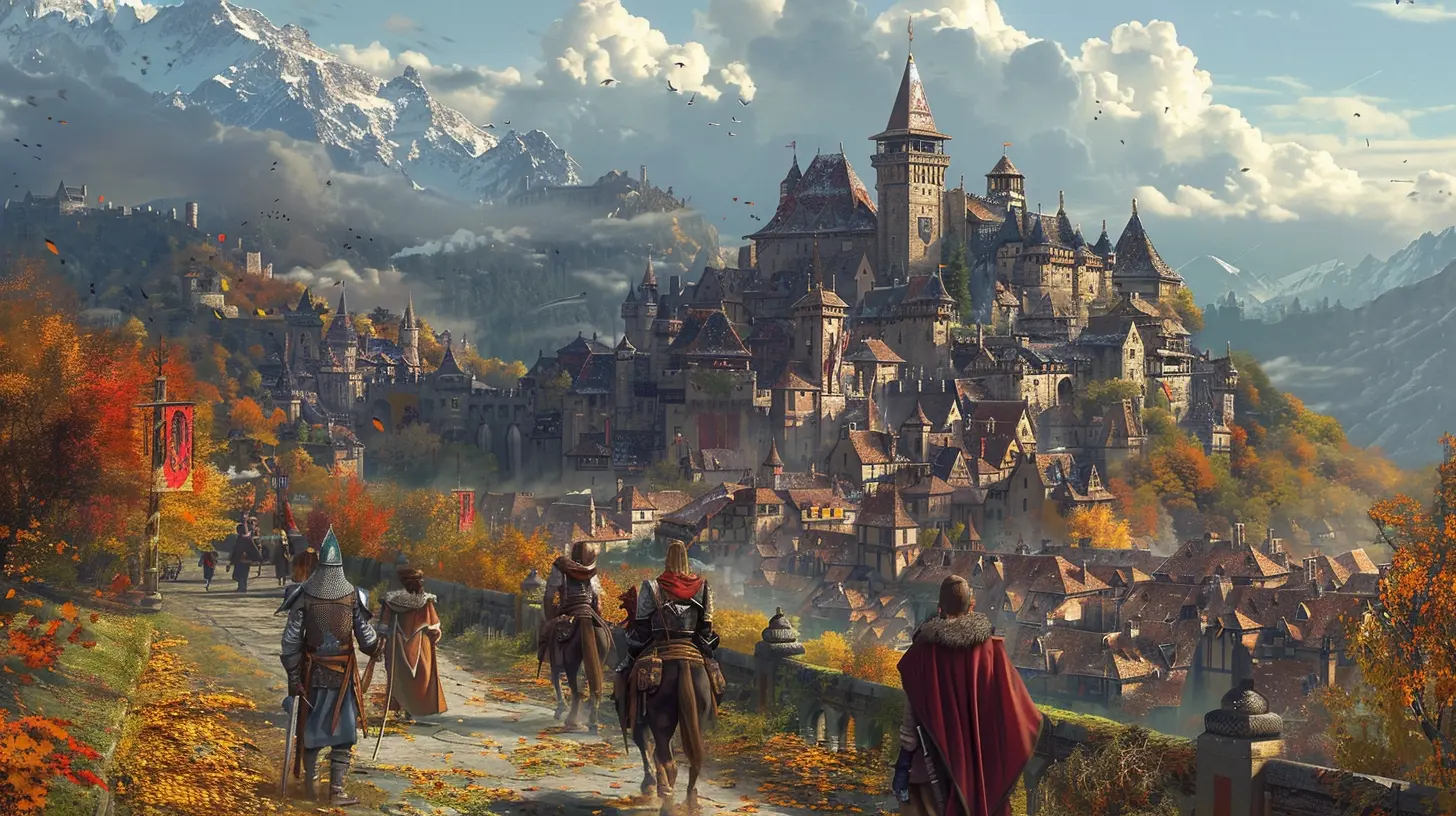
From Guildmates to Real Mates
Guilds are the ultimate breeding grounds for friendships. If you’ve ever joined one, you know it’s not just about gaming. Sure, the guild chat starts with raid strategies or recruitment announcements. But give it time, and it evolves.Before you know it, you’re wishing guild members happy birthdays, asking for life advice, or helping someone through a rough time. Many guilds even set up Discord servers where members hang out, watch movies, or just vibe—even when they’re not gaming.
A lot of these connections spill over into the real world. It’s not uncommon for guilds to organize meetups, host IRL events, or simply keep in touch through social media. What starts as a digital bond often turns into face-to-face friendships. 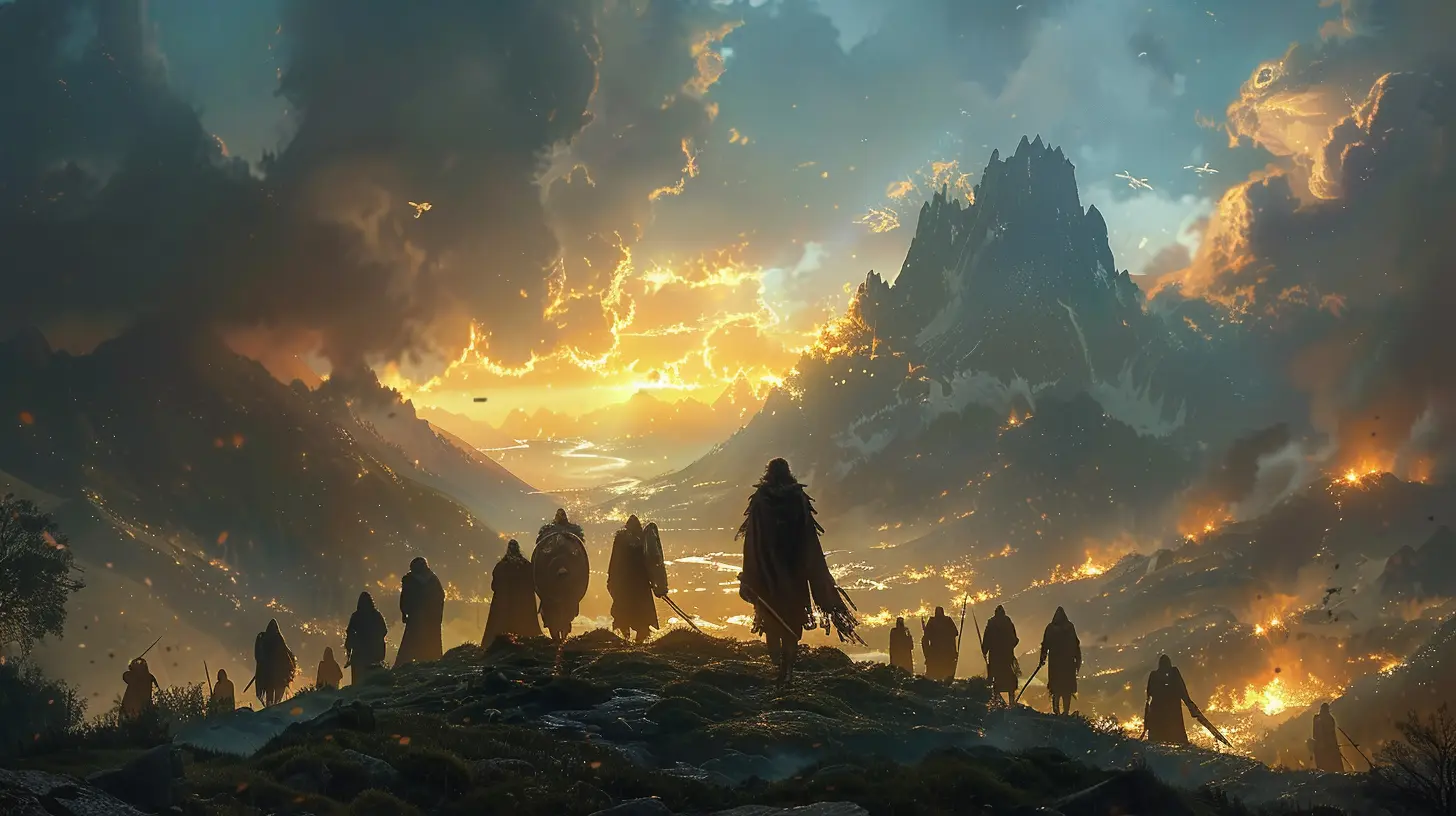
The “Icebreaker Effect”
Let’s face it—making friends as an adult is hard. It’s awkward and often feels like everyone already has their squad. But multiplayer fantasy games? They skip the awkward small talk and throw you straight into working together.These games are like virtual icebreakers. Picture this: instead of nervously asking, “So, what do you do for fun?” you’re already fighting side by side in a chaotic battle. The shared experience breaks down social barriers and gives you a reason to connect.
And since you’re already geeking out over a shared passion (hello, love for fantasy worlds), conversations flow naturally. It’s easier to go from “Nice heal, bro!” to “Wanna team up tomorrow?” and eventually to, “What’s your favorite pizza topping?”
Vulnerability in Fantasy Worlds
It might sound strange, but fantasy games often create space for vulnerability. When you’re playing a character, there’s this weird sense of freedom. You’re not bound by societal norms or the expectations of “being cool.”You can be goofy, brave, or even make mistakes without worrying about judgment. This creates an environment where you can be your authentic self. And when people accept you—quirks and all—it builds trust.
That trust often extends beyond the game because, let’s be real, when someone’s kept you alive in the game’s toughest dungeon, they’ve earned some street cred in your book.
The Role of Empathy
Fantasy games are rich with storytelling, and that often means you’re navigating worlds filled with complex characters, emotional quests, and moral dilemmas. Experiencing these narratives alongside others cultivates empathy.Maybe your teammate just revealed they cried during that one tragic cutscene, or perhaps you bonded over how much you despised a certain villain. Moments like these create deeper connections because you’re sharing emotions, not just loot.
Empathy is the backbone of any friendship, and multiplayer fantasy games foster it in spades.
Real-World Examples of Virtual Bonds
The idea that “online friends aren’t real friends” no longer holds water. Stories of players forming lifelong friendships (or even relationships) through multiplayer games are everywhere.Take, for instance, the countless Reddit threads where gamers share how they met their best friends or significant others in MMORPGs like World of Warcraft or Final Fantasy XIV. Some even travel across the globe to meet their online squads.
One heartwarming story involves a group of gamers who banded together to help a guildmate facing a financial crisis. They fundraised money, offered emotional support, and helped him get back on his feet—all because of a connection forged in a fantasy game.
The Pandemic’s Game-Changer
The COVID-19 pandemic drove home just how essential multiplayer games are for social connection. As the world went into lockdown, millions turned to virtual worlds not just for entertainment but for human interaction.Multiplayer fantasy games became a lifeline. Friends hosted virtual birthday parties in games, acquaintances became close friends, and guilds grew tighter than ever. It was proof that these games aren’t just about escapism—they’re about community.
Debunking the Misconceptions
If you’re still skeptical, let me crush a couple of myths.1. “Online friendships aren’t real.”
False. Just because you met someone in a virtual world doesn’t mean the connection isn’t genuine. The bonds formed in these games hold up in real-life settings.
2. “Gamers are loners.”
Wrong again. Modern multiplayer games are inherently social. They require teamwork, cooperation, and communication—hardly the makings of a loner.
3. “Fantasy games are just for kids.”
Nope. Multiplayers like Elder Scrolls Online or Guild Wars 2 are packed with adults forging meaningful friendships.
How to Get Started
If you’re new to multiplayer fantasy games and want to see what the hype is all about, here’s what you can do:- Pick the Right Game: Look for games with active communities, like World of Warcraft, Elden Ring, or Genshin Impact.
- Join a Guild or Clan: Guilds are where friendships thrive. Don’t be shy—most guilds are super welcoming.
- Use Voice Chat: Typing is great, but voice chat makes interactions feel more personal.
- Be Open to Connection: Treat your teammates like potential friends, not just allies.
Final Thoughts
Multiplayer fantasy games aren’t just about grinding levels or collecting shiny loot. They’re about people. They create environments where friendships naturally blossom, thanks to shared goals, communication, and a sprinkle of vulnerability.So next time someone tells you gaming is anti-social, feel free to hit them with this: “I’ve got friends from around the world—and we’ve slayed dragons together.”
Because in the end, fantasy games don’t just connect people online—they build real-world friendships that last a lifetime.
all images in this post were generated using AI tools
Category:
Fantasy GamesAuthor:

Tina Fisher
Discussion
rate this article
1 comments
Kylie McGill
This article wonderfully highlights how multiplayer fantasy games create genuine connections. It’s fascinating to see how virtual adventures can lead to lasting real-world friendships!
October 21, 2025 at 3:05 AM

Tina Fisher
Thank you! I’m glad you enjoyed the article and appreciate your insight on the powerful connections formed through multiplayer fantasy games.
